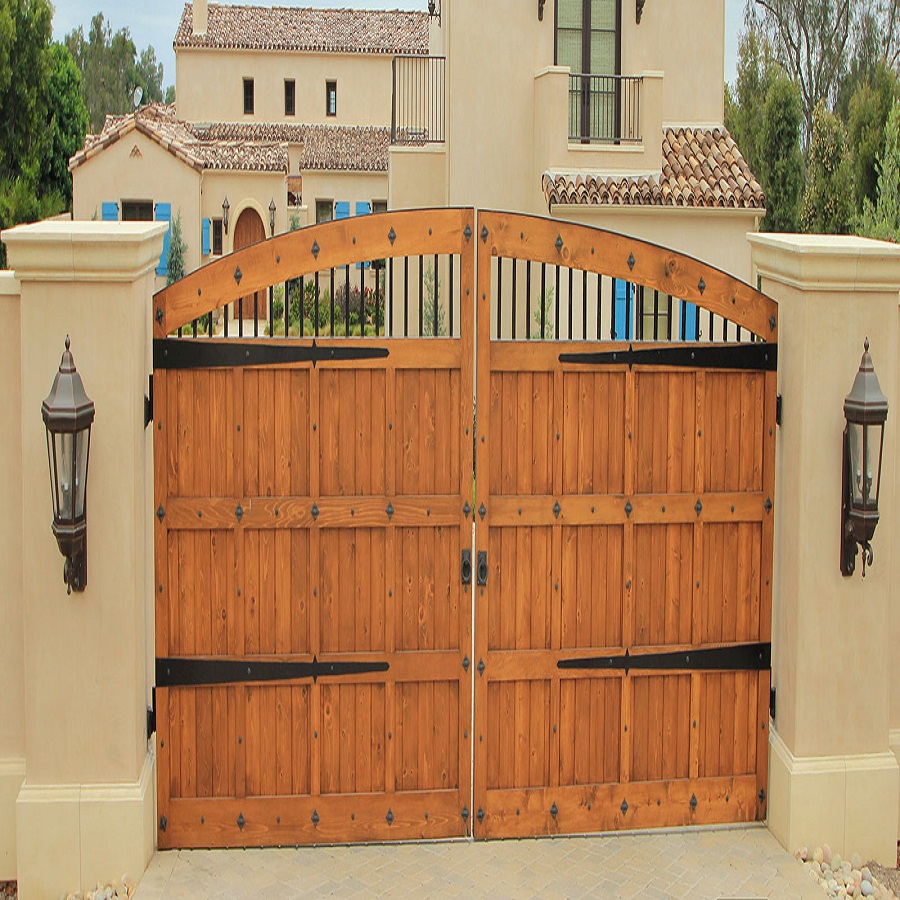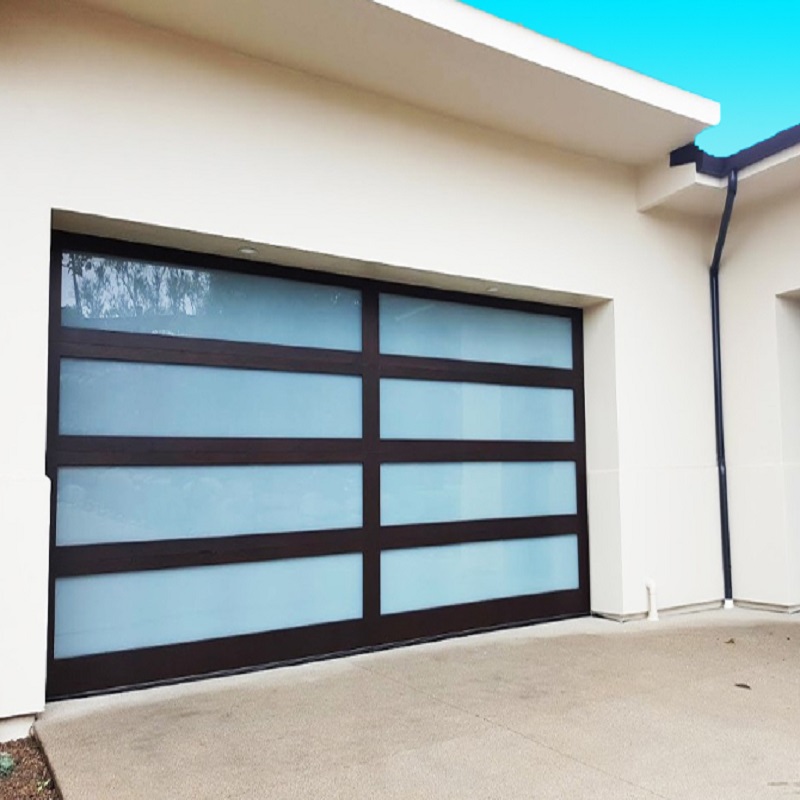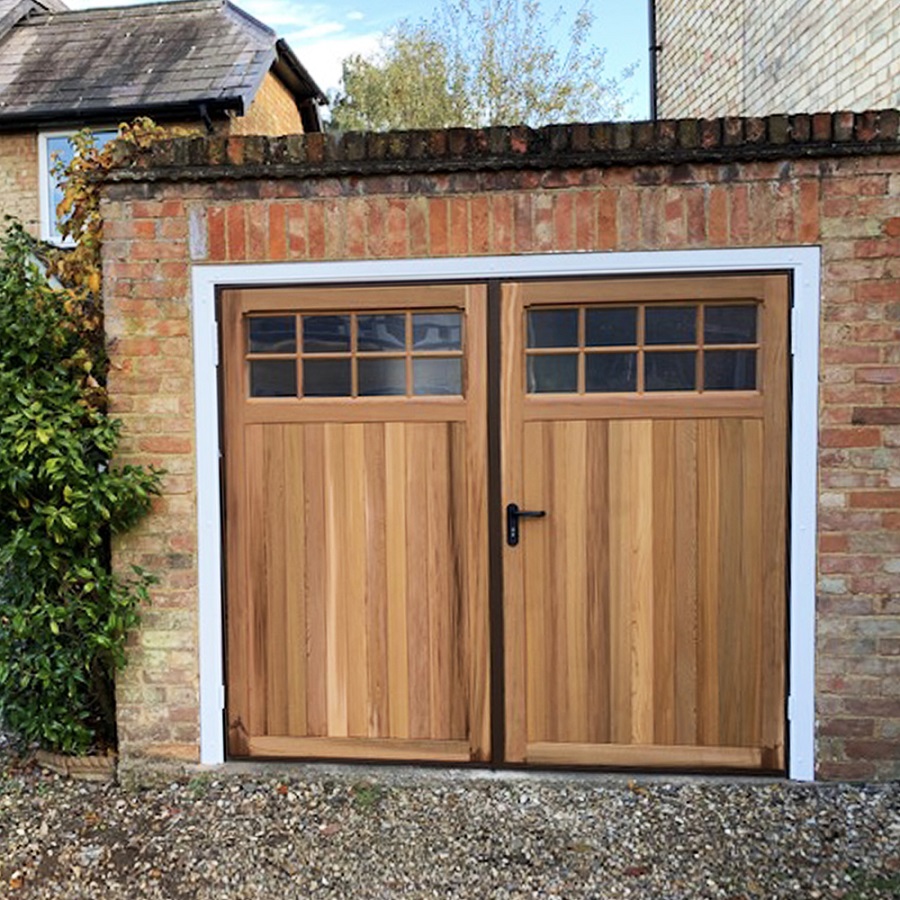Garage doors and gates serve as essential components of our homes, providing security, convenience, and aesthetic appeal. This comprehensive guide explores the various types of garage doors and gates available today, detailing their features, benefits, and considerations to help you make informed decisions.
Understanding Garage Doors
Types of Garage Doors
Garage doors come in several types, each with unique characteristics and functionalities. The most common types include sectional, roller, tilt-up, and side-hinged doors.
Sectional Doors: These are composed of several horizontal panels that slide up and down. Sectional doors are popular due to their space-saving design and excellent insulation properties. They can be made from steel, aluminum, or wood, and they can be customized with various finishes.
Roller Doors: Ideal for tight spaces, roller doors roll up into a compact coil above the door opening. This type is often found in commercial settings but has gained popularity for residential use due to its sleek appearance and ease of operation.
Tilt-Up Doors: These single-panel doors tilt upward to open and rest parallel to the ceiling. They offer a classic look but require more space to operate. Tilt-up doors can be made from wood or steel and are known for their durability.

Material Options for Garage Doors
Choosing the right material for your garage door is crucial, as it affects durability, maintenance, and insulation. The most common materials include steel, aluminum, wood, and fiberglass.
Steel: Steel doors are among the most popular choices due to their strength and low maintenance requirements. They are resistant to rust and can be insulated for energy efficiency. However, they can dent easily if not properly cared for.
Aluminum: Lightweight and resistant to corrosion, aluminum doors are ideal for coastal areas. They can be customized with various finishes and are less likely to rust, but they may not provide the same level of insulation as steel.
Wood: Wooden garage doors offer a timeless and elegant look. They can be customized in various styles and finishes but require regular maintenance to prevent warping and cracking.
Garage Door Mechanisms
Manual vs. Automatic Garage Doors
One of the primary considerations when selecting a garage door is whether to choose a manual or automatic mechanism. Each option has its advantages and drawbacks.
Manual Garage Doors: These require physical effort to open and close. While they can be more affordable, they may not be as convenient, particularly in inclement weather. Manual doors are often chosen for their simplicity and reliability.
Automatic Garage Doors: These doors operate with the push of a button, providing significant convenience. Many modern automatic doors come equipped with safety features, such as sensors to prevent accidents. Although they can be more expensive, the added comfort and security often justify the investment.
Garage Door Openers
Garage door openers play a crucial role in the functionality of automatic doors. Different types of openers include chain-driven, belt-driven, and screw-driven models.
Chain-Driven Openers: These are the most common type and are known for their reliability and cost-effectiveness. However, they can be noisy and may require more maintenance over time.
Belt-Driven Openers: Quieter than chain-driven models, belt-driven openers use a rubber belt to lift the door. They are ideal for homes attached to garages, as they minimize noise pollution.
Gate Types and Styles
Swing Gates
Swing gates are a popular choice for residential properties, featuring two panels that swing open and closed.
Design Versatility: These gates come in various designs, including single, double, and even custom shapes. Materials can range from wood to wrought iron, allowing homeowners to select a style that complements their property.
Space Requirements: One consideration with swing gates is the amount of space they need to open fully. They require sufficient room both inside and outside the property line, which can limit their installation in smaller yards.
Slide Gates
Slide gates operate by sliding along a track, making them an excellent choice for properties with limited space.
Space Efficiency: Slide gates do not swing open, allowing for a more efficient use of space in crowded areas. This characteristic makes them ideal for driveways located near sidewalks or other obstacles.
Bi-Folding Gates
Bi-folding gates consist of multiple panels that fold in on themselves, offering a stylish yet functional option for property entrances.
Aesthetic Appeal: These gates are often used in high-end residential developments and commercial applications for their modern design. They can be made from various materials, including wood, aluminum, or composite materials, providing flexibility in aesthetics.
Operational Flexibility: Bi-folding gates can be operated manually or automatically, making them versatile for different needs. Their design allows for quick access while maintaining security.

Materials for Gates
Wood Gates
Wooden gates exude warmth and charm, making them a popular choice for residential properties.
Natural Aesthetic: Wood offers a natural beauty that can enhance the visual appeal of any home. Various types of wood, such as cedar or redwood, can withstand outdoor conditions while providing an attractive finish.
Maintenance Needs: While wood gates can be stunning, they require regular maintenance to prevent rotting and warping. Homeowners must regularly seal and stain their wooden gates to preserve their beauty and functionality.
Metal Gates
Metal gates, such as those made from wrought iron or aluminum, are known for their strength and durability.
Durability: Metal gates are resistant to the elements, making them a long-lasting investment. They can withstand harsh weather conditions without compromising integrity.
Vinyl Gates
Vinyl gates are becoming increasingly popular due to their low maintenance and durability.
Easy Maintenance: Unlike wood, vinyl gates do not require painting or staining, making them a hassle-free choice. They can be easily cleaned with soap and water, maintaining their appearance over time.
Variety of Styles: Available in various colors and styles, vinyl gates can mimic the look of wood without the associated maintenance. This versatility makes them an attractive option for homeowners seeking both functionality and aesthetics.
Choosing the Right Garage Door and Gate
Assessing Your Needs
Before selecting a garage door or gate, it’s essential to assess your specific needs. Consider factors such as available space, desired aesthetics, and security requirements.
Space Considerations: Evaluate the layout of your property. If space is limited, options like roller garage doors or slide gates may be ideal. Conversely, if you have ample space, you might prefer swing doors or gates for their aesthetic appeal.
Security and Privacy: Determine how important security and privacy are for your property. Look for garage doors and gates with robust locking systems and solid construction to enhance safety.
Budgeting for Your Investment
Setting a budget is crucial when considering garage doors and gates. Prices can vary widely based on material, design, and additional features.
Material Costs: Generally, steel and vinyl gates are more affordable than wooden options. However, consider long-term costs, including maintenance, when making your decision. Higher initial investments in durable materials may save money in the long run.
Installation Expenses: Factor in installation costs, as some types may require professional assistance. While DIY installations can save money, complex systems may necessitate expert help to ensure proper functionality and safety.

Installation and Maintenance Tips
Professional Installation vs. DIY
Choosing between professional installation and a DIY approach depends on your skills, tools, and the complexity of the project.
Professional Installation: Hiring professionals ensures the job is done correctly and safely, particularly for automatic garage doors and complex gate systems. Professionals can also provide valuable advice on selection and maintenance.
DIY Considerations: If you are handy and have experience with similar projects, a DIY installation can be rewarding and cost-effective. Be sure to follow manufacturer instructions closely and invest in the necessary tools for a successful outcome.
Regular Maintenance Practices
Routine maintenance is essential for prolonging the life of your garage door and gate. Establish a maintenance schedule to keep your investment in top condition.
Garage Doors: Inspect your garage door regularly for signs of wear, such as damaged panels or frayed cables. Lubricate moving parts to prevent rust and ensure smooth operation. If you notice any issues, address them promptly to avoid further damage.
Gates: For gates, check hinges and locks for functionality. Apply lubricant to moving parts and ensure that gate tracks are free of debris. Regularly inspect the structure for signs of rot or corrosion, especially for wooden and metal gates.
Conclusion
Choosing the right garage door and gate is a multifaceted decision that impacts security, convenience, and curb appeal. With a variety of types, materials, and styles available, homeowners can find options that suit their specific needs and tastes.
This comprehensive guide serves as a valuable resource for understanding the different types of garage doors and gates, their mechanisms, and key considerations for installation and maintenance. By assessing your requirements, budgeting wisely, and performing regular maintenance, you can enjoy the benefits of a well-chosen garage door and gate for years to come.
